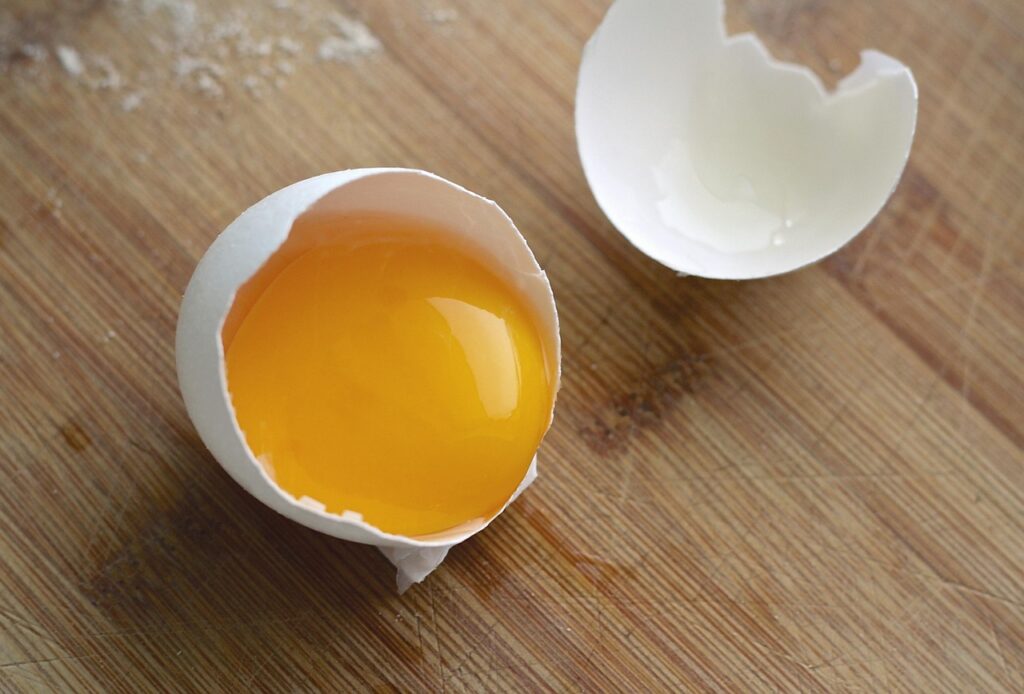Introduction
Ever cracked open an egg and wondered just how long it had been sitting on the counter? You’re not alone. One of the most frequently asked questions in food safety is: How long do fresh eggs last on the counter? Whether you’re a backyard chicken enthusiast, a homesteader, or just curious about food preservation, understanding egg shelf life is crucial. Let’s crack this mystery wide open (pun intended) and dive into everything you need to know.

Image by Aline Ponce from Pixabay
Why Egg Storage Matters
Proper egg storage isn’t just about keeping breakfast tasty—it’s a matter of health and hygiene. Storing eggs the right way can prevent bacterial growth, particularly Salmonella, and maximize the lifespan of your eggs.
Understanding Egg Safety
Eggshells are more than fragile—they’re your egg’s first line of defense. Inside, the egg is sterile at the time of lay. Outside, it can become contaminated easily if not handled or stored properly.
The Role of the Cuticle or Bloom
Freshly laid eggs are covered in a natural protective coating called the bloom or cuticle, which seals the pores of the eggshell. This invisible layer helps keep out bacteria and moisture.
- Washing eggs removes the bloom, which is why eggs in the U.S. must be refrigerated.
- In contrast, many European countries do not wash their eggs and therefore leave them unrefrigerated.
How Long Do Fresh Eggs Last Unrefrigerated?
In general, unwashed fresh eggs can last up to 3 weeks on the counter at room temperature (about 68°F or 20°C). However, multiple variables can shorten or lengthen this timeframe.
U.S. vs. Other Countries
In the U.S., health regulations require egg washing and refrigeration due to the risk of Salmonella enteritidis contamination. But in countries like France and the UK, the bloom remains intact, making unrefrigerated storage safe under most conditions.
| Country | Washed Eggs? | Refrigeration Required? |
| USA | Yes | Yes |
| UK | No | No |
| Australia | No | No |
Factors Affecting Shelf Life on the Counter
- Room Temperature – Warmer temperatures speed up spoilage.
- Humidity – Moist conditions may encourage mold or bacteria.
- Cleanliness of Nest Box – Dirt and fecal matter can compromise egg safety.
- Air Circulation – Still air can promote spoilage; a ventilated space is ideal.

Image by Peggychoucair from Pixabay
Signs an Egg Has Gone Bad
How do you know if an egg has expired? Here’s how to test it without cracking it first.
The Float Test
Fill a glass with water:
- Fresh egg – sinks to the bottom and lays flat
- 1–2-week-old egg – stands upright
- Bad egg – floats to the top (air cell has expanded due to age)
Smell and Appearance
- Bad smell = immediate discard
- Cloudy whites = still fresh (CO2 hasn’t dispersed yet)
- Pink or greenish whites = possible bacterial contamination
How to Extend the Shelf Life of Fresh Eggs
Whether you choose to refrigerate or not, these practices help keep your eggs usable for longer.
Proper Counter Storage
- Store in a cool, dark place
- Avoid direct sunlight or heat
- Use an egg skelter (egg organizer) to rotate eggs by date
When and How to Wash Eggs
- Only wash eggs right before use
- If necessary, use warm water only and dry immediately
- For storage, keep them unwashed to preserve the bloom
Refrigerated vs. Unrefrigerated: Pros and Cons
Is Refrigeration Always Better?
While refrigeration can prolong freshness (up to 3 months), it’s not always ideal:
Pros of Refrigeration:
- Longer shelf life
- Reduced bacterial growth
- Safer for store-bought eggs
Cons:
- Cold eggs can sweat when brought to room temperature, increasing risk of contamination
- Takes up fridge space
Natural vs. Commercial Eggs
- Backyard eggs = safer unrefrigerated (if unwashed)
- Commercial eggs = always refrigerate due to loss of bloom during washing
Should Backyard Eggs Be Stored Differently?
Absolutely. If you’re collecting eggs from your own hens:
- Don’t wash unless dirty
- Keep in a cool pantry or cellar
- If unsure of egg age, use the float test before cooking

Are Store-Bought Eggs Already Washed?
Yes. In the U.S., all commercial eggs are washed, making them unsafe to store at room temperature for extended periods.
Cultural Differences in Egg Storage Practices
In many parts of the world, eggs are sold and stored at room temperature:
- In Europe, eggs are considered safe unrefrigerated due to stronger farm sanitation practices and vaccination of hens against Salmonella.
- In Asia, many markets display eggs in open baskets without refrigeration.
This doesn’t mean one method is better—it reflects differences in agricultural policy, food safety practices, and cultural norms.
Best Practices for Egg Safety at Home
- Always wash hands after handling raw eggs
- Store cracked or dirty eggs in the fridge and use them promptly
- When in doubt, throw it out
FAQs
1. Can I leave fresh eggs out overnight?
Yes, unwashed fresh eggs can be left out overnight without issue, especially if the room is cool.
2. How do I know if an egg is still good?
Try the float test or crack it open and inspect for any odd smells or discoloration.
3. Do fertilized eggs spoil faster?
No, fertilization doesn’t affect spoilage unless incubation begins, which only happens at sustained warmth above 85°F.
4. Can I re-coat washed eggs?
There are commercial sprays that mimic the bloom, but they aren’t as effective as the original coating.
5. What temperature is too warm for storing eggs on the counter?
Anything above 75°F (24°C) significantly reduces shelf life and increases bacterial risk.
6. Is it safe to eat eggs that have been left out for a few days?
If they were unwashed and kept in a cool area, they’re likely still fine. Perform a float test to be sure.

Image by Varintorn Kantawong from Pixabay
Conclusion
So, how long do fresh eggs last on the counter? The answer depends on whether your eggs are washed or unwashed, store-bought or farm-fresh, and how they’re stored. Unwashed backyard eggs can last up to 3 weeks, while store-bought eggs should go straight to the fridge. Follow the safety tips above and trust your senses—if it smells bad or floats, toss it!
